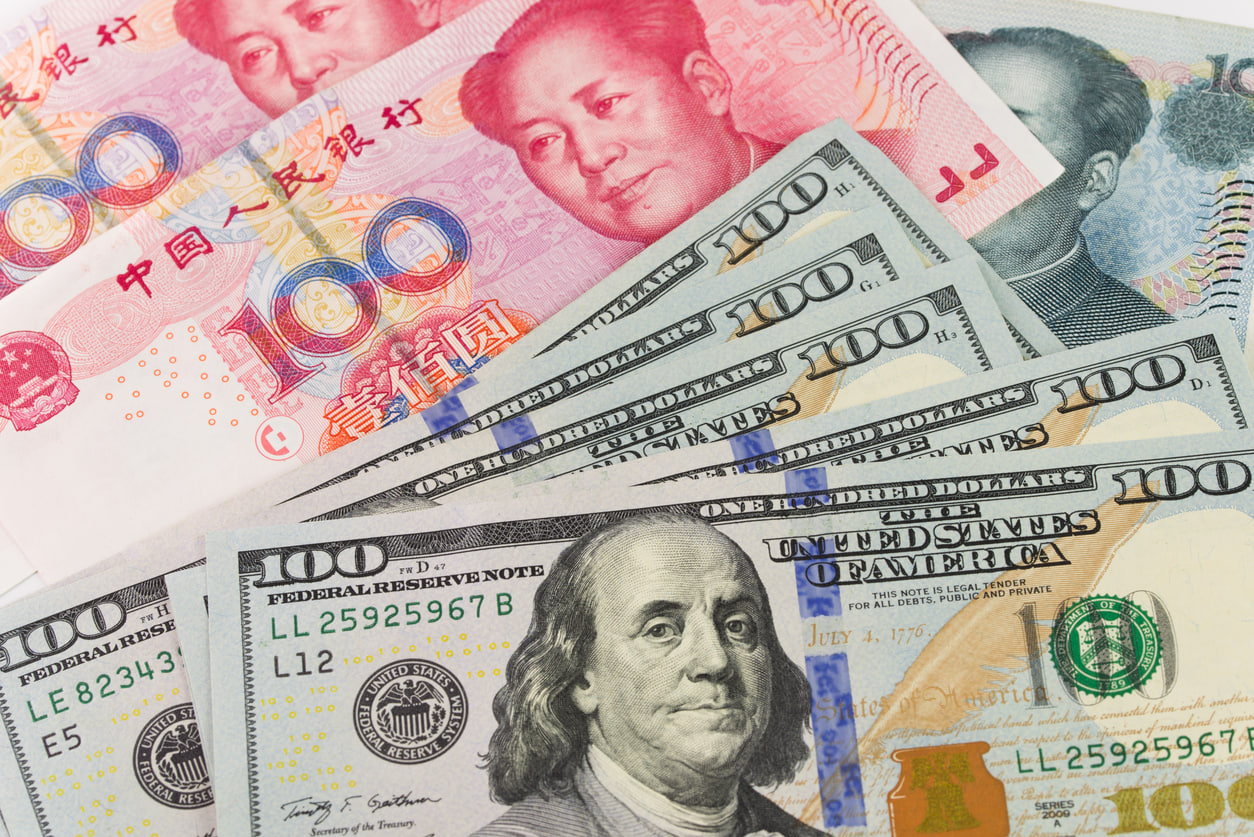Putin's Geopolitical Gambit: Analyzing Russia's Stance on US-China Relations
Meta Description: Deep dive into Putin's assessment of US-China relations, exploring the economic repercussions of US containment strategies, Russia's geopolitical maneuvering, and the future of global trade. Includes expert analysis, insightful commentary, and a Q&A section. Keywords: Putin, US-China Relations, Geopolitics, Global Trade, Economic Sanctions, Russia, China, USA.
This isn't just another news recap; it's a geopolitical chess match played out on the world stage. Imagine this: President Putin, in his Moscow residence, calmly assessing the economic fallout of the US's attempts to curb China's rise. He's not just observing; he's strategizing, weaving a narrative that subtly positions Russia as a key player in a rapidly shifting global landscape. It’s a power play, a calculated move in the ongoing game of global influence, and understanding its nuances is crucial for anyone wanting to grasp the complexities of modern international relations. This isn't about dry facts and figures; this is about the human element – ambition, strategy, and the potential for unforeseen consequences. We'll dissect Putin's statements, explore the underlying economic realities, and examine the potential ramifications for the global economy. Get ready to enter the fascinating world of geopolitical maneuvering, where every word carries weight, and every silence speaks volumes. We'll analyze the complexities of the situation, examining the motivations behind US policies, the resilience of the Chinese economy, and Russia's role in this intricate dance of power. Prepare to be informed, challenged, and perhaps even surprised by the intricate web of international relations. Buckle up, it's going to be a wild ride.
US-China Trade Relations: A Russian Perspective
Putin's recent remarks regarding the US's attempts to contain China's economic growth paint a compelling, albeit biased, picture. He argues that these efforts, far from hindering China, have backfired, impacting the competitiveness of American goods. This isn't simply a statement; it's a strategic narrative designed to position Russia. Let's unpack this assertion:
Firstly, Putin's analogy of telling the sun "not to rise" is powerful rhetoric. It underscores his belief in the inevitability of China's economic growth, portraying US attempts at containment as futile. This resonates with a global audience weary of economic instability and increasingly skeptical of unilateral actions.
Secondly, the claim that US trade restrictions are primarily motivated by a desire to slow Chinese economic growth, rather than purely political reasons, is a nuanced observation. While political considerations undoubtedly play a role, the economic impact of China's rise on global markets is undeniable. The US, like many other nations, faces challenges in maintaining its economic dominance amidst China's rapid expansion.
Thirdly, Putin's statement implies that Russia, while not explicitly supporting China's actions, benefits from the weakening of the US economy. This is a subtle yet significant undercurrent. The weakening of a major global power creates opportunities for other nations to gain influence, potentially strengthening Russia's geopolitical position in the long run.
The Economic Realities: Beyond the Rhetoric
While Putin's assessment is undeniably coloured by Russia's own geopolitical interests, some of his comments resonate with economic realities. The US-China trade war, initiated under the previous administration, undeniably created economic disruptions. Tariffs imposed by both sides led to increased prices for consumers and uncertainty for businesses. The impact on American competitiveness is a complex issue, with varying perspectives among economists. Some argue that certain sectors suffered, while others thrived due to increased domestic demand or redirected trade relationships. However, the overall impact remains a subject of ongoing debate and analysis.
The International Monetary Fund (IMF) and World Bank reports from this period highlight the global economic slowdown linked to the trade dispute. These reports offer valuable data-driven insights, allowing for a more balanced assessment of the economic ramifications beyond Putin’s political observations. While these institutions don't explicitly endorse Putin's conclusions, their findings do confirm the existence of negative economic consequences stemming from the trade tensions.
Russia's Strategic Positioning: A Calculated Move
Putin's statements are not merely observations; they are part of a broader strategic communication effort. By portraying the US as economically self-destructive, he seeks to weaken its global standing and implicitly bolster Russia's own influence. This approach aligns with Russia's longstanding foreign policy goals of challenging the US-led world order and promoting a multipolar world.
This strategy is multifaceted. It includes:
- Strengthening ties with China: The implied support for China's economic growth, even if not explicitly stated, signals a closer alignment between Moscow and Beijing. This partnership offers Russia access to Chinese markets and technology, potentially mitigating the impact of Western sanctions.
- Exploiting Western divisions: Putin's narrative aims to exacerbate existing tensions within the West. By highlighting the economic downsides of confronting China, he attempts to sow discord among US allies, potentially weakening their resolve to confront Russia on other fronts, such as Ukraine.
- Diversifying economic partnerships: Russia is actively pursuing new economic partnerships across Asia, Africa, and Latin America. This diversification reduces its dependence on Western markets and strengthens its resilience against sanctions.
This intricate approach showcases Russia’s expertise in geopolitical maneuvering, utilizing economic realities to enhance its global position.
The Future of Global Trade: Navigating Uncertainty
The ongoing tensions between the US and China, coupled with Russia's strategic positioning, create a complex and uncertain global economic landscape. The future of global trade depends on several key factors:
- The evolution of US-China relations: The path of future trade relations between these two economic giants will significantly impact the global economy. Any de-escalation of tensions or a renewed focus on cooperation could mitigate some of the negative consequences.
- Russia's role in the emerging multipolar world: Russia's strategic partnerships and its ability to leverage existing global tensions will influence the balance of power and shape future trade relationships.
- The resilience of the global economy: The overall strength of the global economy will determine the extent to which nations can withstand economic shocks and adapt to changing trade dynamics.
Frequently Asked Questions (FAQ)
-
Q: Is Putin's assessment of US economic policy entirely accurate? A: Putin's analysis is undeniably shaped by Russia's geopolitical interests. While some of his observations about the negative economic consequences of trade tensions ring true, a more nuanced perspective requires considering multiple viewpoints and data sources.
-
Q: What are the implications for the global economy? A: The ongoing US-China tensions, exacerbated by Russia's strategic posturing, create significant uncertainty. The global economy may experience further instability, impacting trade flows, investment, and consumer confidence.
-
Q: How does this impact smaller nations? A: Smaller nations are particularly vulnerable to global economic instability. They often lack the economic diversification and resources to withstand shocks originating in major power dynamics.
-
Q: What role does Russia play in this scenario? A: Russia actively seeks to leverage the existing tensions to strengthen its global influence, particularly by deepening ties with China and diversifying its economic partnerships.
-
Q: Could this lead to further conflict? A: While not directly leading to armed conflict, the economic and geopolitical tensions could exacerbate existing conflicts or create new points of friction.
-
Q: What can individuals do? A: Individuals can stay informed about global events, support responsible economic practices, and advocate for policies that promote peace and cooperation.
Conclusion: The Game is Afoot
Putin's statements about US-China relations are more than just commentary; they’re strategic moves in a complex geopolitical game. Understanding the nuances of this situation, including the economic realities and the interplay of global power dynamics, is crucial for navigating the uncertainties of the future. The global economic landscape is shifting, and the implications of these developments will be felt worldwide, affecting everything from the price of goods to the stability of international relations. The next chapter in this unfolding narrative remains unwritten, but one thing is certain: the stakes are high, and the game is far from over.



